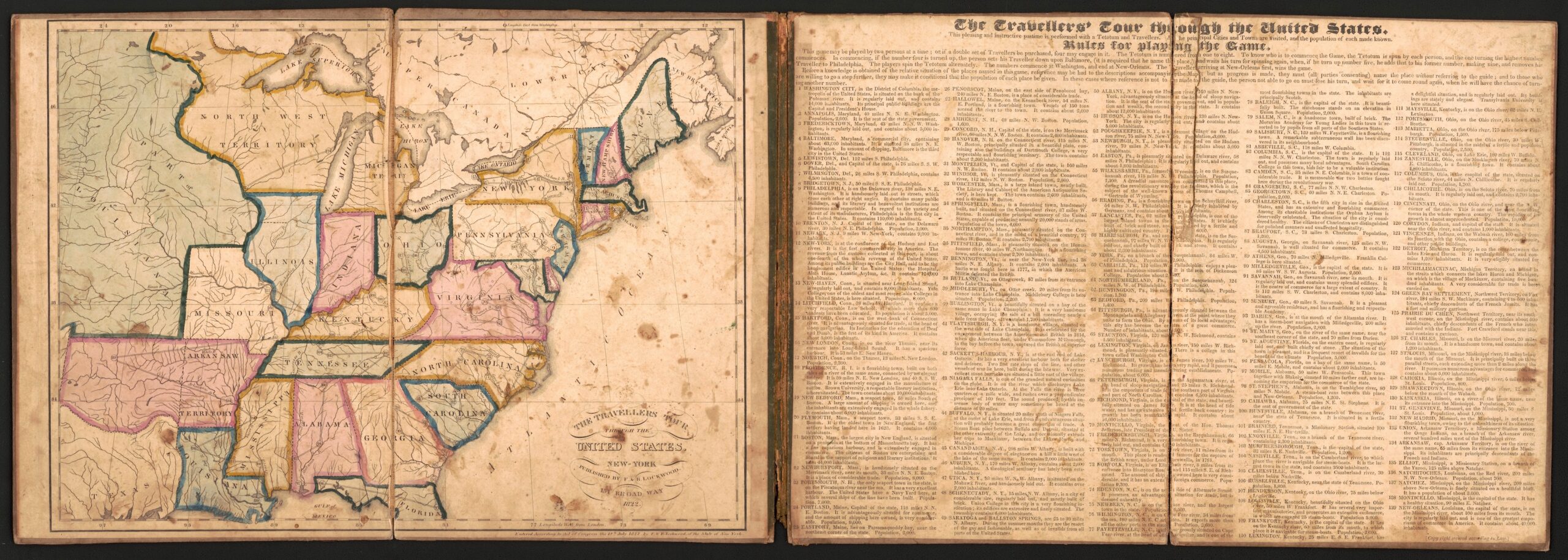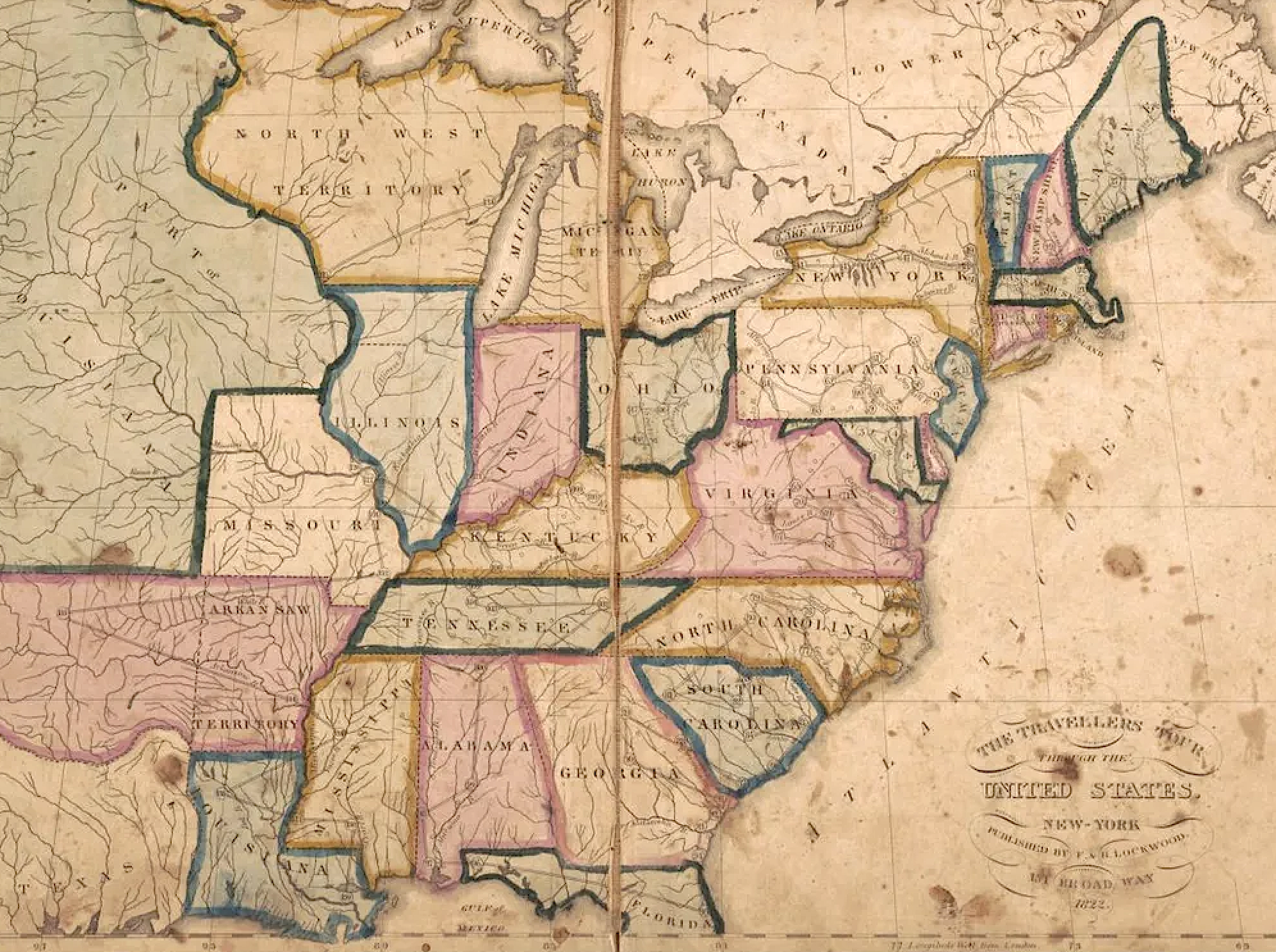
Asked to name a classic American board game, most of us would first think of Monopoly, whose imagery and verbiage — Park Place, Rich Uncle Pennybags, “Do not pass go” — has worked its way deep into the culture since Parker Brothers brought it to market in 1935. Despite that, it isn’t the oldest American board game: that honor goes to Travellers’ Tour Through the United States, which came out more than a century earlier, in 1822. Whereas Monopoly teaches its players about real-estate values in Depression-era Atlantic City (as well as a thing or two about capitalism), the older game took a larger subject for its educational ambitions: the whole of the United States of America.
Of course, that whole was a lot smaller back in 1822, the year after Missouri became the 24th state. Travellers’ Tour Through the United States presents its two-to-four players with the task of traversing the young country, beginning in Washington and ending in New Orleans. This is done by spinning something called a “teetotum,” a kind of hybrid between a top and a die, designed to hedge against the sinful associations of gambling. The player then moves ahead according to the distance shown on the teetotum, but must name the unlabeled city on which they’ve landed — and, in a more challenging variation, guess its population — in order to remain there.
As they move their pieces across the country, players can also read the included descriptions of each city, town, and region through which they pass. “Promoting the value of education, the game highlights institutions of learning,” writes Smithsonian.com’s Matthew Wynn Sivils. “Philadelphia’s ‘literary and benevolent institutions are numerous and respectable.’ Providence boasts ‘Brown University, a respectable literary institution.’ ” Making their way south, “players learn about Richmond’s ‘fertile backcountry’ and the ‘polished manners and unaffected hospitality’ of the citizens of Charleston. Savannah ‘contains many splendid edifices’ and Columbia’s ‘South Carolina College … bids fair to be a valuable institution.’ ”

As clear-eyed descriptions of the United States in the early nineteenth century, these fall somewhat short of Tocqueville — but then, they were written almost a decade before Alexis de Tocqueville set foot in America. Not only did the country still have much expansion across the continent left to do, it had amassed but a fraction of the power and influence it would go on to do in the twentieth century. However compelling a spectacle the U.S. had become to foreign observers, it must have inspired among its own people an even stronger yearning to understand its nature, and therefore its future — a yearning the makers of Travellers’ Tour Through the United States clearly hoped would motivate sales. As a product, it seems not to have been successful, but as an idea, it lives on more than 200 years later in the form of the great American road trip.
via My Modern Met/Smithsonian
Related content:
The Fear and Loathing in Las Vegas Board Game, Inspired by Hunter S. Thompson’s Rollicking Novel
A Brief History of the Great American Road Trip
Based in Seoul, Colin Marshall writes and broadcasts on cities, language, and culture. His projects include the Substack newsletter Books on Cities and the book The Stateless City: a Walk through 21st-Century Los Angeles. Follow him on Twitter at @colinmarshall or on Facebook.


Leave a Reply